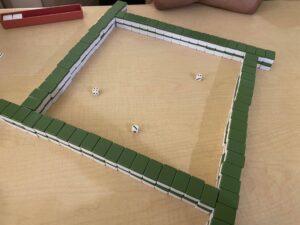
I played Mahjong, a traditional Chinese tile game that is a game of chance with an unclear origin (originated in China for sure). There is a strict number of 4 players per round. The game is meant for 12+ and preferably someone who understands Chinese or at least Chinese characters. The procedure is as follows: out of 144 tiles, you will have an initial hand of 13 tiles. As every round goes, you can draw a tile from the unrevealed pool and discard one tile from your hand. In simple words, the ultimate goal is to get 4 triplets and 1 pair. For triplets, you can either get the same number of the same suit (three 5 of dots) or a straight of the same suit (3, 4, 5 of dots). You have a chance to pick up a tile that any other player threw out if you can form a triplet of the same number (ex: you already have two 4 of dots and someone discarded another 4 of dots), or you can pick up a tile from the person that went before you if you can form a straight of the same suit. However, if you pick up a tile from the person before you to form a straight, that means you have to commit your entire hand to that single suit (excluding special tiles). There are much more procedures to mahjong, but it would be too much to explain in this post.
Moment of failure:
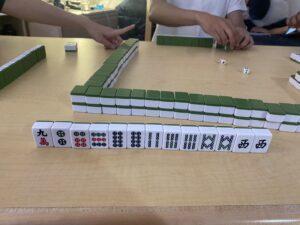
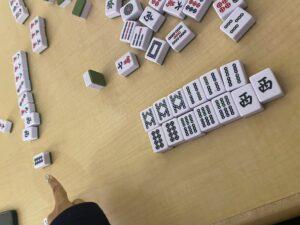
I got a really good initial hand – I already have 4 doubles to begin with which is pretty good. However, I did not win at the end since I’m missing one single tile, and I found out after the game that the player who went after me is about the discard the exact tile I need to win. I was so, so annoyed at that time because first, I had a really good initial hand, and second, I could literally win in the next move, but someone else won one move before my winning move.
Moment of success:
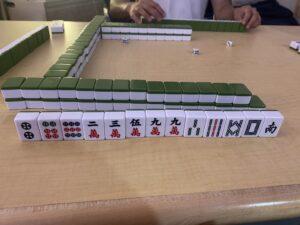
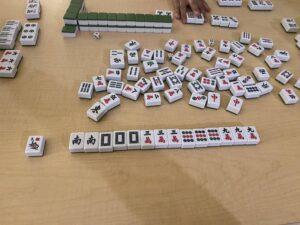
My moment of success literally came the next game after my moment of failure. I had a pretty bad initial hand, since I only have one pair, and i had 3 circle tiles, 5 character tiles, 3 bamboo tiles, and 2 special tiles. This number is so equally spread so it was hard for me to commit to any certain suit if I want to play with straights. However, I won at the end!
Comments about luck: I’ve heard some players, including myself, saying something like “my initial hand is so bad…”, but not so much crediting to the luck when people win. I think this might be due to people’s egos, but it might be more because of how mahjong is not heavily reliant on sheer luck – it really requires tactics, thinking, and planning to win. However, it can be really defeating at the start if you have a bad initial hand.
Mahjong puts people at risk of addiction since at the end of each round, players would easily feel that they are a few, if not one, tiles away from winning. I think this specific quality and clever calculation of the number of tiles vs probability is what makes mahjong so addictive. For example, you might be missing one final tile which will make you think you are very close to winning, but you never know where the tile is – it can be far away in the unrevealed tiles, or it can be a part of another player’s hand that they are for sure not dropping out (in which case you won’t be able to ever get it). Since the players will focus on the number of tiles they need to get but not necessarily the possibility of tiles they will get in order to win, mahjong puts people at risk of addiction. Also, since the game requires much more than sheer luck, people will be addicted to the game more because they feel like they have a decent sense of control over the game with their own decision, and the more you play the game, you will discover a strategy of playing the game (sort of like having a sense of what combinations are easier to get).



